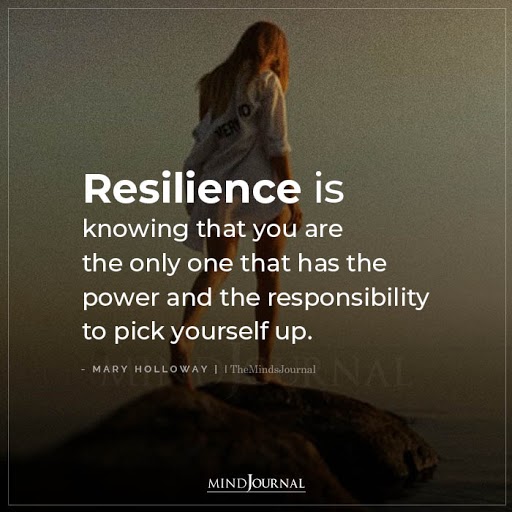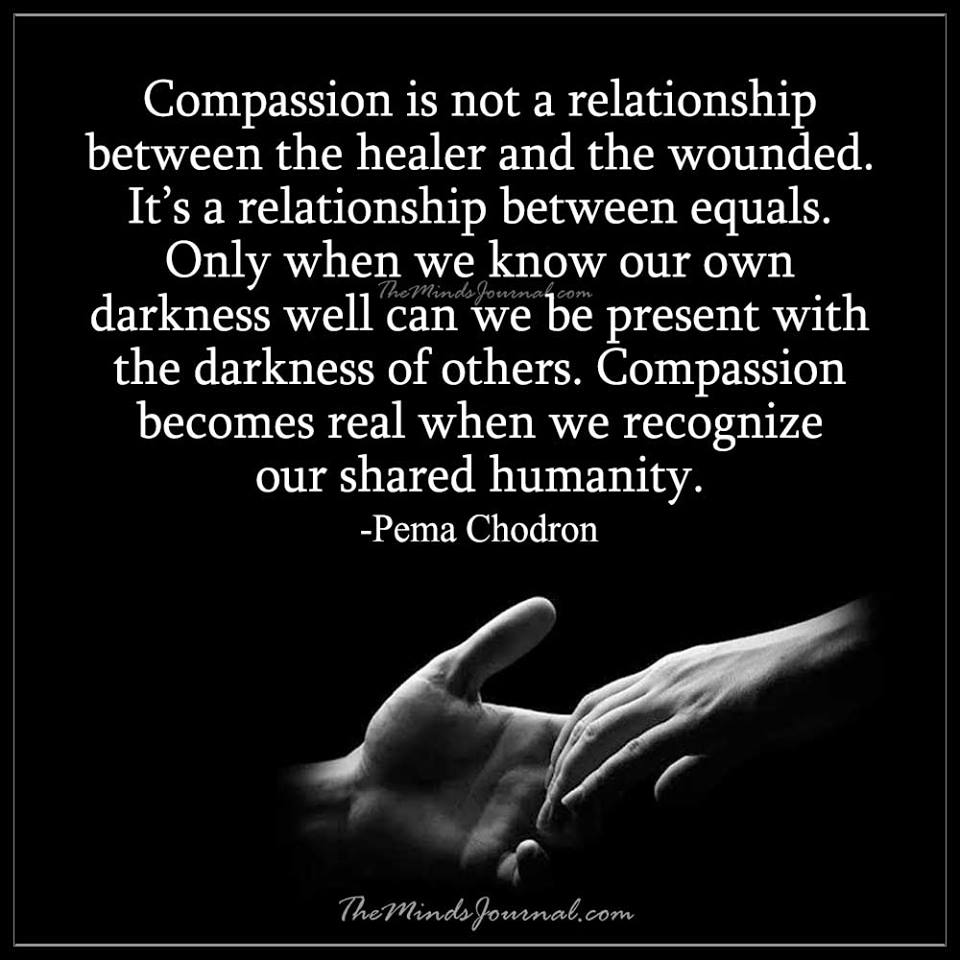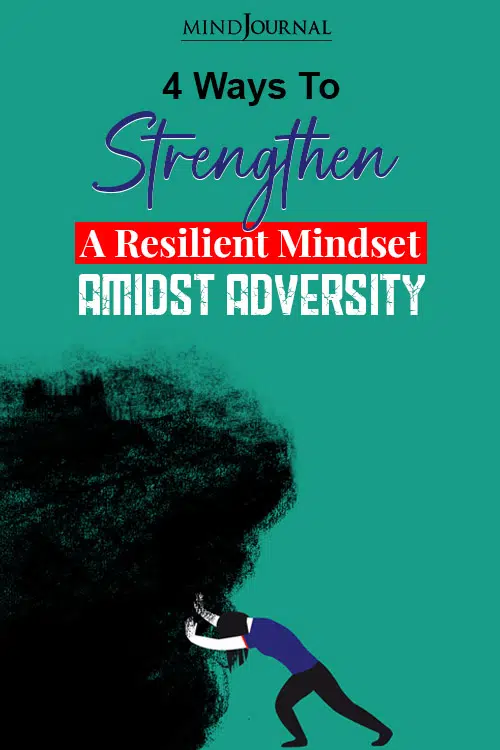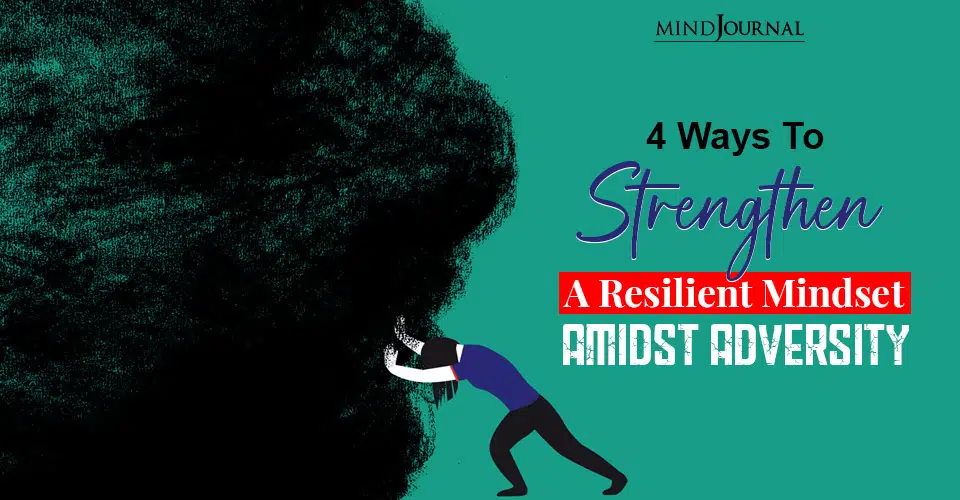How to navigate the challenges of your life? If I had to sum up in one sentence what I have learned from sitting with so many patients in my office over the course of 25 years, it would be this: More than anything, the human spirit is remarkably resilient. Pandemic year has only reinforced that realization for me.
Resilience is “the process of adapting well in the face of adversity, trauma, tragedy, threats, or significant sources of stress.” What research has shown us about resilience is that it isn’t an extraordinary quality but one that is accessible to all of us,* and in fact it can be learned and strengthened.
One of the things that we know about facing stress is that the mindset we adopt and our reflection on what we can learn from a difficult situation can help us cope more effectively. In fact, even in the face of significant trauma, research shows that many people experience something referred to as post-traumatic growth*—positive growth that involves new ways that they view themselves, their lives, and the relationships around them.

This has been a year of extraordinary challenge, stress, adversity, and for many, even trauma—from losing loved ones, to separation and not being able to see those we love, to loss of our “normal” life as we knew it, to loss of jobs and financial hardships that so many have endured. We have had to adjust—have been thrown into coping with circumstances that would have, prior to this, seemed unfathomable.
While there is hope on the horizon with vaccines starting to be administered, I realize some of the most challenging months still lie ahead.
Here are 4 things to reflect on that might help you strengthen a resilient mindset in the midst of challenges
1. Focus on what you can nurture, not what you “need” to change.
While the new year is typically a time for resolutions, goal-setting, and considering changes we want to make, this year feels markedly different to me. Many people are exhausted, overwhelmed, and anxious with the ongoing uncertainty of things, and the idea of focusing on change feels for many like one more thing that there isn’t energy for. Instead, a more helpful approach at this time might be to focus on what you want to nurture, that is already here. How might you nurture yourself, connections with those you care about, and/or engagement in meaningful activities?

Questions to Consider:
What is it that you are already doing to take care of yourself? Make a point to take notice—do you feel best on days when you go to sleep earlier, go for a walk, call a friend, etc.? How might you invite more of that into your life?
What helps bring you into connection with others that feels most nourishing for you (e.g., Zoom calls, phone calls, outdoor walks, online groups), and how might you make a point to check in with yourself on a regular basis to make sure you are getting enough of this?
What activities do you already engage in that give you a sense of meaning, and how might you continue bringing this into your life? (For example, my friend, who gets great pleasure from gardening, is looking into indoor gardening during these long, winter months in New England.)
Also, read 15 Traits of A Mentally Strong Woman
2. Increased clarity of values.
I have heard from many people that this pandemic has been an opportunity to consider, re-evaluate, and clarify values and what is most important to them. For some people, having to be at home for extended periods of time has been a chance to reflect on ways they might want to slow down more (commute less, run around less frenetically), or spend more family time together (such as making it a point to eat together more often), even after the pandemic.
One of the things I have found so comforting during these difficult months has been spending more time in nature—realizing how deeply restorative it is for me.
Questions to consider:
How has this pandemic helped you to recognize some of the things that are most important to you and some of the things that maybe you thought were important but that you can live without?
What is one thing that you may not want to change—even after this pandemic is over? (For me, having a weekly extended family Zoom call has helped me appreciate connecting to the family I don’t always see and is something I definitely want to continue going forward, pandemic or not.)
3. Discovering inner resources.
If anyone had ever told me on March 1, 2020, how the next 10-plus months would look, I would have surely thought to myself, “I don’t know how I would ever possibly handle that. That sounds unbearable.” But having endured this, I have learned a thing or two about what helps me cope.
I have, more than ever, put my own tools into practice that I teach others, to help me find calm when I am gripped by strong fear, and to find my way back to the present moment when my mind is running away with ruminative thoughts. In my psychology practice, my patients have discovered that they have tremendous inner strength, courage, and adaptability that they didn’t realize they had access to.
Questions to consider:
What is one thing you have done that has helped you cope through these challenges, that has supported your well-being? What is something that you learned about yourself, about your own strength or courage, that you may not have realized?
Also read How You Can Protect Your Inner Self and Emerge A Stronger Person
4. Greater compassion.
Despite everything our world has been through and the tremendous losses and adversities people have faced, the desire to help others and the outpouring of compassion has been enormous. From making signs to cheer on essential health care workers, to helping neighbors in need, to organizing support on community and global levels—for many, it has brought out the best in us. This time of challenge has activated our innate caring system, and with it—kindness, compassion, and a strong sense of common humanity (that we are all in this together).

Questions to consider:
In what way has your heart opened up during this past year? Touching into your own capacity for kindness, compassion, and caring, what has this, or does this current situation, inspire in you? (It could be something simple like making an extra effort to express appreciation to the grocery clerk, or taking a moment before eating to appreciate all the people who made your food on your table possible, or checking in on your neighbor who lives alone.)
My father recently came home from the hospital and the outpouring and generosity from the neighbors dropping off meals has been truly heartwarming. Sometimes one may not realize the impact that even small gestures of care can have on those on the receiving end.
Also read How To Discipline Sensitive Children? 5 Science-Backed Strategies
While there are many aspects of our life circumstances that we don’t have control over, being able to focus on choices we do have can help us cope, even with great difficulties. Fostering a resilient mindset is one way to do this. It doesn’t mean we don’t feel pain and suffering, but it does offer just a bit more ease as we navigate through our challenges.
Written by: Beth Kurland, Ph.D Originally appeared on: Psychology Today Republished with permission









Leave a Reply
You must be logged in to post a comment.